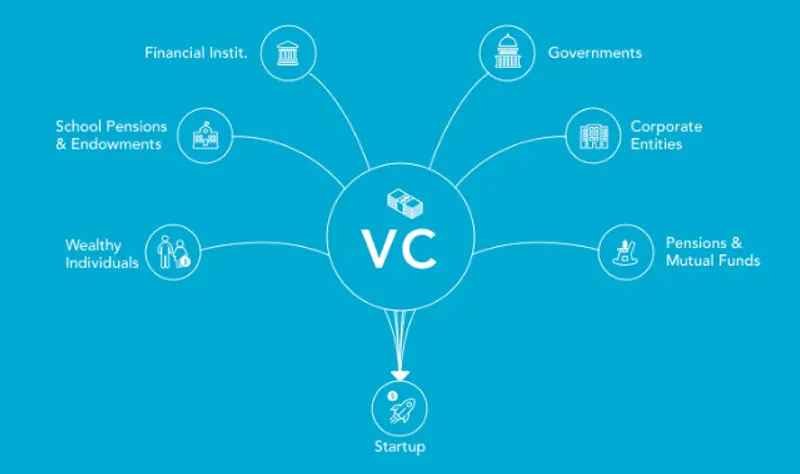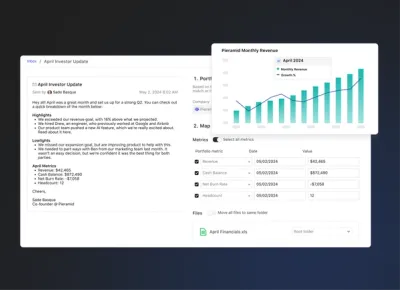
VC financing markets have, recently, felt like a monopoly game where your best friend is the banker and you let them pick their token first. It has never been easier to raise capital and at the entrepreneurs terms. What many founders and entrepreneurs forget is the responsibility they hold after they have a term sheet signed and fresh cash in the bank.
Venture Capital and Investment Firms have a duty to provide returns to their Limited Partners (aka their investors); they are not just a bunch of rich people and organizations who give their ‘fun money’ to chance.
I had a chat with close friend and Analyst at Real Ventures, Alex Shee about ‘why do VCs need data on their portfolio companies?’ and what they do with that information. My hope to is to help founders understand the importance of accurate and consistent reporting so that we can stop all these fucking stupid blog posts on the nipping frostbite of ‘some tech winter.’
Why do VCs Need Your Data [and Updates]
Their Own Analysis
AS: We look over a company’s metrics and add in our own analysis: doing advanced modeling to ensure projections and growth looks good now and for the future. We also establish benchmarks; it’s not just about comparing, its about establishing what success looks like. The idea of benchmarking is to be predictive using data; its also a manner of analyzing macro trends in the market and helping companies fully capitalize on opportunities.
NM: VCs also take a look at each company to provide comparison and see if there are any patterns (good and bad) that others have already gone through. Using their experience, and market knowledge, to find and identify opportunities or triggers that the company may not foresee.
To Make Sure You’re Doing OK
NM: Yes, your VCs do care about you. They probably reviewed 100+ other company proposals, went through the due diligence and opened up their time, office hours, resources, and bank account, to YOU. Your success is their success, and their success helps build toward yours.
AS: Our success is directly linked to our portfolio. The more data we have the better informed we are. The better informed we are the more chances we can help. The more we can help, highly correlates to companies succeeding. Investors look for 3 things: Vision, Traction and Good Management. The only way to demonstrate traction is through metrics. The only way to show good management is through transparent reporting.
VCs Have Their Own Investors to Report to
NM: Investors have to report to their LPs (Limited Partners); for those of you who don’t know how the Venture Capital food chain works. People forget that a Venture Fund is meant to provide a return back to its investors at a multiple much higher than public markets.
Limited Partners of a Venture Fund come from all different places, from wealthy individuals, to financial institutions, to school endowments and pension funds; even governments make investments into venture funds. Also, for those curious minds, VCs almost always contribute their own capital to the funds they raise.

AS: When you raise your maiden fund, you talk about your experience, knowledge, network, and any success as an Angel to raise capital. After your first fund, all those details barely mean anything. Investors (Limited Partners) want to know the success of the fund; from the financial details, pedigree of portfolio companies, to impact metrics that are important to them. Limited Partners require transparency to succeed against the public markets.
“LPs need to have accurate, timely information to continue to invest in the private market, otherwise they’ll look towards other markets that provide better communication of their investment.”
Internal and External Auditing
NM: VCs need to know how a company is progressing so they know how to properly report their value and returns to their LPs and firm. VCs want to get as much of the money from successful (and unsuccessful) investments so the sooner they know what to expect for a return, the easier they can maximize their profits, and continue to invest in more startups.
AS: VCs also get audited for more reasons than just tax. The financials have to show a true and fair view of the state of the investment funds, so that the LPs can have comfort they own what they think they own. We also have our corporate taxes to manage, which normally requires an audit.
To See How They Can Help
AS: The reason why we do it [Venture Capital] is to help. Everyone in the VC world wants the companies in their portfolio to succeed. The more information we have the better we can determine how we can help. Being in the dark is no different for an investor with a company than a significant other in a relationship; we just sit there, wondering why they’re not answering and what could possibly be wrong with no direction.
NM: A person goes into Venture Capital to several reasons, but the best (and true) VCs do it to help companies grow and be part of something great; this success then translates to maximizing investment returns which then makes everyone happy. VCs know that there are 3 big needs of young companies: Capital, Talent, and Resources. With early-stage capital becoming a very competitive space, investors are offering more than just capital to entice a company to sign their term sheet.
To Learn From Your Success [and Failures]
NM: When VCs provide their time, experience, and knowledge, you’re receiving the value of all the compounded learnings and experiences they have from all companies they have worked with. By providing updates, feedback, data, and context of your own progress, they can not only help you, but other companies as well.
AS: Our experience goes a long way to help grow a company in the best way possible, but this also helps when a company is looking to raise future financing. Knowing all the metrics and details helps us advise on what type of pitch deck to build, what metrics to show off, and what other investors they can introduce us to for follow-on financing.
Last Words
The more informed your investors are, the more time, talent, and resources they can provide to you.
There needs to be more fiduciary responsibility maturity in the Startup<>VC world. While many of us look at VCs as sugar daddies because of the rampant access to capital and valuations in the recent years; we should view this like getting a loan from a business partner.
I want to thank Alex for taking the time to chat and write this with me. I know that ‘humanizing Venture Capitalists’ isn’t the most popular thing to do, but if we don’t, they’ll eventually disappear.
Enjoy Your Day, Go Create Something, and Make Someone Smile



